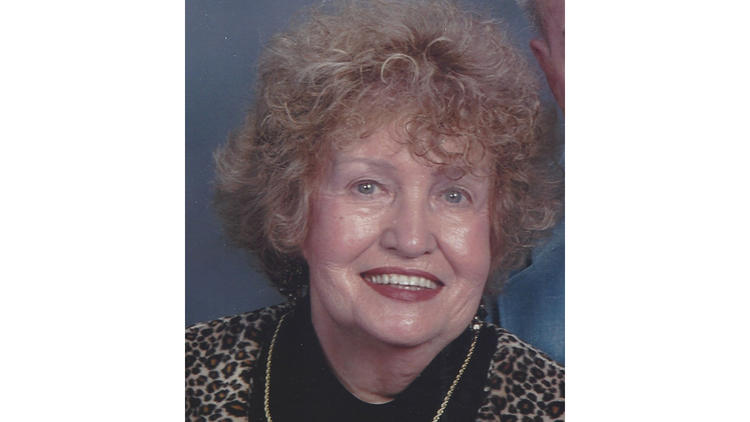Man Wants Mom's Tombstone to Say She "Supported Priest Rapist Victims," but Diocese Objects
Chicago Tribune
Marguerite Ridgeway was a fervent Catholic until her faith was shaken when church sex abuse scandals came to light, particularly a decades-old trauma recounted by her daughter-in-law. Now Ridgeway’s son wants to install a marker at his late mother’s gravesite in Wheaton bearing the inscription “She supported priest rapist victims.” The Roman Catholic Diocese of Joliet, which owns Assumption Cemetery, has objected to what it calls the “explicit language” of the epitaph. Ridgeway’s son, Jack Ruhl, of Kalamazoo, Mich., recently sent a rendering of the planned marker to the cemetery, along with a $350 check to cover the installation fee. “I ask that you do not dishonor the memory of my mother by further delay in installation of her grave marker,” he said in an email to officials with the diocese earlier this month. An attorney for the diocese in an Oct. 6 letter proposed removing the word “rapist” and substituting softer language, such as “She supported clergy sex abuse victims,” or “She supported victims of clergy sex abuse.” The letter described the word rapist as “graphic, offensive and shocking to the senses.” “This is not a subject that we at the Diocese of Joliet shy away from; it is a sad chapter in our history that we think about daily,” diocese attorney Maureen Harton said in the letter. “Our concern must be with the many people who visit Assumption Cemetery with the expectation that their quiet time with their loved ones will be peaceful, tranquil and free of stress and anxiety.” The letter added that Ridgeway signed a contract in 2001 agreeing that a diocese cemetery official must approve all memorials before they can be placed at the grave. “The inscription you have submitted has not been approved; rather, we ask you consider one of the above variations or a similar less graphic version,” the letter said. But Ruhl, who grew up in south suburban Riverdale, said in a phone interview that he is not backing down from the original language, adding that it’s important to keep the words “priest” and “rapist.” “I don't understand why this marker is controversial in the least,” he said in an Oct. 4 email to diocese officials. “It states, ‘She supported priest rapist victims.’ Doesn't the Diocese of Joliet also support priest rapist victims?” Ruhl described his mother as an adult convert to Catholicism who used to call the Holy Communion her source of strength. But he said she grew disillusioned as more victims across the country shed light on sex abuse within the church. Among them was her daughter-in-law Diane Ruhl, Jack Ruhl’s wife, one of several women who filed lawsuits in 2003 alleging sexual abuse by a Jesuit priest decades ago. The priest was a professor at Loyola University and Diane Ruhl was an 18-year-old freshman when, she said, she was abused in the 1970s. She said she ultimately received a settlement from the Jesuit religious order. Jack Ruhl said his mother closely followed the stories of many abuse victims across the country and in the area, some of whom committed suicide, and she was outraged at cover-ups by church hierarchy. Locally, the Diocese of Joliet in 2015 agreed to a settlement of roughly $4 million to 14 men who said priests molested them when they were children decades ago at various suburban churches. While Ridgeway, formerly of Lisle, remained deeply spiritual, she was so outraged that she stopped attending Mass and giving donations to the church, her son said. Diane Ruhl, who grew up in Chicago, said she was always touched by the support of her mother-in-law. “A lot of people hear your story, but they don’t want to talk about it,” Diane Ruhl said in a phone interview. “She took it seriously.” Ridgeway died July 15, 2015. Despite her break with Catholicism, she did request a Catholic funeral Mass and wanted to be buried at Assumption Cemetery next to the grave of her daughter, her son said. Cemeteries across the country have been sites of conflict stemming from the fallout of church sex abuse. A woman from Grand Rapids, Mich., last year began fighting for the removal of a headstone at the grave of a priest she believes sexually abused her brother, who is buried nearby at the same cemetery. Several years ago, the Catholic Diocese of Duluth in Minnesota included the priest’s name in a list of clergy credibly accused of abuse. In 2007, the Catholic Diocese of Raleigh in North Carolina had the remains of a priest exhumed and moved to another cemetery a few miles away as part of an abuse settlement. The priest’s original grave was less than 20 feet from where the parents of two abuse victims were buried; the victims said they were too pained by the priest’s tombstone to visit the final resting place of their parents. Victims elsewhere have also erected markers to promote healing. In Iowa, a monument was installed at the headquarters of the Catholic Diocese of Davenport in 2005 as part of a $9 million settlement. The marker, shaped like an old-fashioned millstone, included the Biblical quote, “… if anyone causes one of these little ones who trust in me to lose faith, it would be better for that person to be thrown into the sea with a large millstone tied around the neck.” “The abuse crisis is not a ‘mirage’ or the result of widespread anti-Catholic bias in the media or ‘a few bad apples,’ ” Jack Ruhl said in an email to officials with the Diocese of Joliet. “It is certainly not over. My mother, a very intelligent and sensitive woman, recognized this.” Contact: eleventis@chicagotribune.com
|
.
Any original material on these pages is copyright © BishopAccountability.org 2004. Reproduce freely with attribution.
